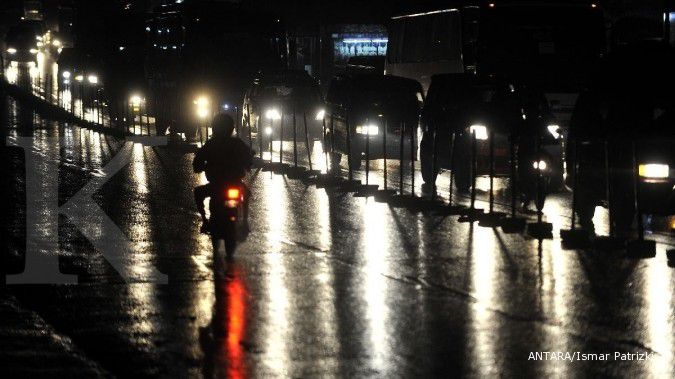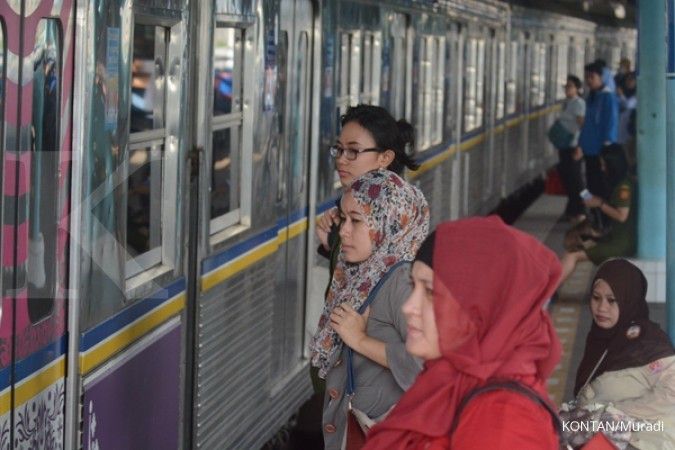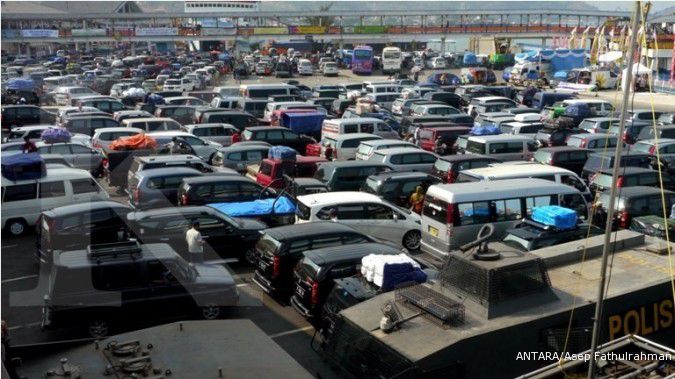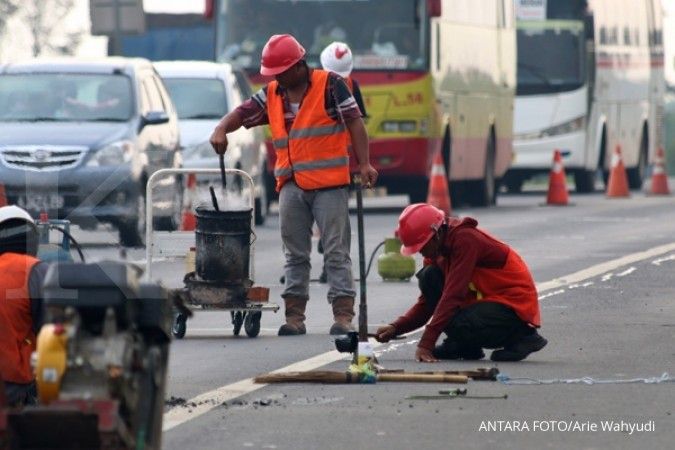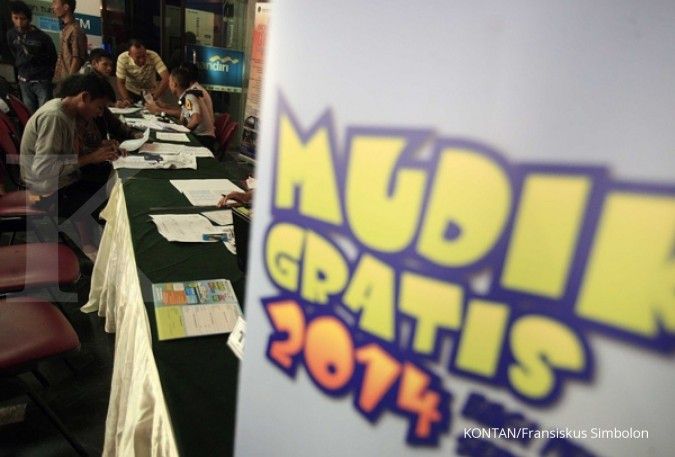JAKARTA. Millions are packing their bags for the often long and grueling trek across Indonesia to spend Idul Fitri with their families.
Every year people return to their hometowns in a tradition called mudik, this year the movement of human traffic is expected to peak from July 25 to 27; the three days prior to Idul Fitri, which is estimated to fall on July 28.
Senen Station has already seen more than 17,000 travelers daily since July 18, according to Agus Kamarudin, public relations officer for state-owned railway operator PT KAI Region 1.
Agus said that given the policy requiring train passengers to be assigned a dedicated seat — as opposed to the age-old tradition of cramming in to the train car or sitting on the roof — the railroads are unable to accommodate the Idul Fitri masses.
“Fortunately we just received 20 new trains,” said Agus.
While train tickets for the holiday season sold out weeks, if not months, ago, the story for intercity bus operators could not be more different.
Pulogadung bus terminal in East Jakarta has seen little traffic this year due to free transportation services sponsored by the government or private companies.
Bus ticket vendors at the terminal are struggling to meet their sales targets. Ticket seller Junaedi, 39, from Lorena bus company on Monday shared his failure to hit his sales target.
“My boss set a target of at least five buses a day but there are just not enough customers” Junaedi, 39, told The Jakarta Post.
Lorena is one of more than 10 bus companies competing to make the most of the heightened demand for travel during the holiday period.
Despite the mass exodus, Junaedi said that his company hardly ever saw more than two buses leaving a day and neither was full.
“Each of our 32-seater buses transport on average around 15 passengers,” he said.
Like Junaedi, Mawar company ticket salesman Rahman said he struggled to fill his busses.
“If I am lucky, I can release two or three buses a day,” said the 31-year-old from Medan, North Sumatra.
He explained that people were more interested in train travel. Plus, he added, competition from the many companies providing free travel had also hampered sales.
Rahman said that his company had improved its services and adjusted its prices for the mudik period, but it had failed to attract more passengers.
“I have seen with my own eyes — people prefer to use the buses [at the Pulogadung terminal] provided by herbal company Antangin. It breaks my heart,” he said.
State-owned insurance company Jasa Raharja, for example, always provides free exodus transportation every year.
This year, it has scheduled 425 buses that will take travelers to 34 destination cities and will accommodate around 27,000 potential passengers in Jakarta.
Passenger Nur Cholid, 48, said that he had been forced to buy a bus ticket because he had no other option: He had wanted to travel to his hometown of Malang, East Java, by train, but had been too late to secure a train ticket. (Josh Kelety)
/2014/07/21/2033405138p.jpg)
